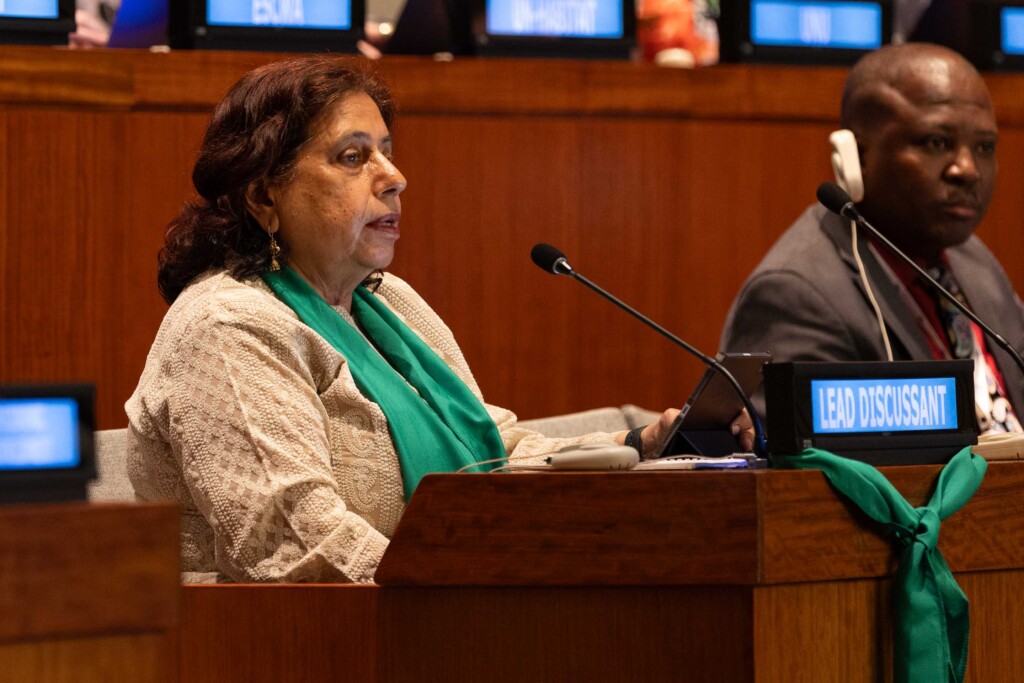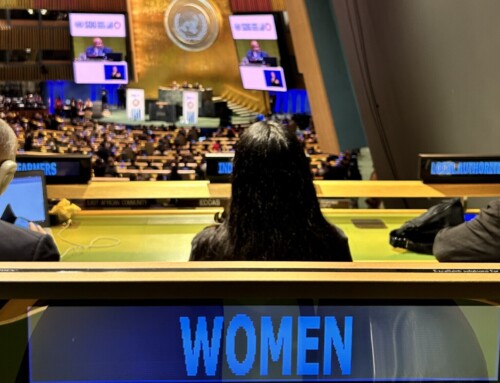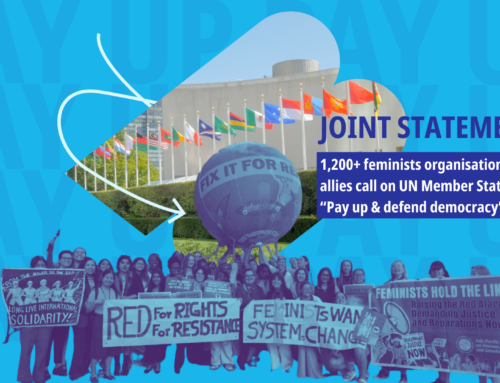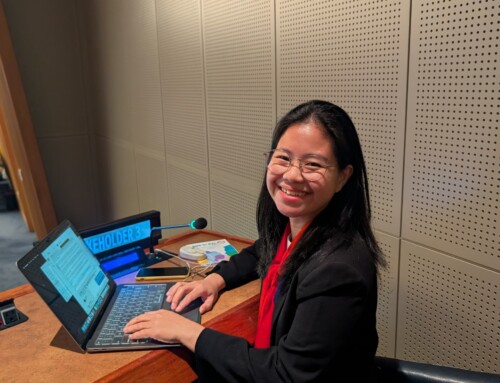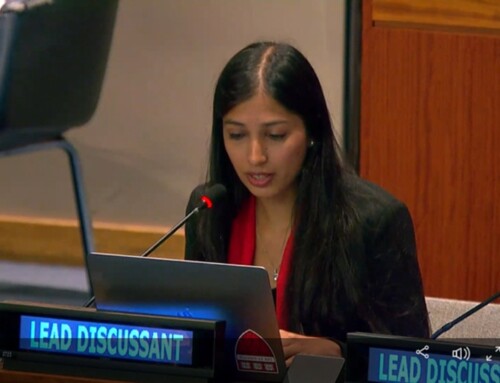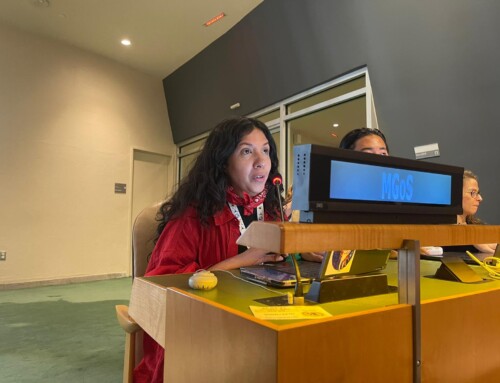APRCEM Lead Discussant in SDG 3
Shobha Shukla, CNS, India
Thanks for giving me the opportunity to speak on behalf of Asia Pacific Regional Civil Society Engagement Mechanism (AP-RCEM).
Right to health cannot be dislocated from gender equality and human rights.
We have to ensure that gender equality and human right to health are recognized as fundamental human rights in all countries.
Progress towards SDG3, continues to be stunted in the Asia Pacific region, such as on universal access to sexual and reproductive health and rights; communicable and noncommunicable diseases; universal health coverage; and access for all to safe, effective, quality and affordable disease prevention tools like vaccines, diagnostics and medicines.
Gender disparities significantly impact health outcomes and evidence shows that SDG 3 goals cannot be realised without addressing SDG 5 on gender equality. Rise of anti-rights and anti-gender ideologies, including the regressive Geneva Consensus Declaration, the most recent trend of defunding development assistance for gender equality and health, the impact of austerity measures in debt-ridden countries, deprioritisation of health spending, and poor domestic resource allocation on health, are contributing to reversal in progress towards SDG3.
Essential health services must include sexual and reproductive health services – including safe abortion and post-abortion care, menstrual health hygiene, and mental health services, with particular attention to women, adolescent girls, persons with disability, indigenous peoples, gender diverse communities, older people, young people, migrant workers, refugees, people living with HIV, sex workers, people who use drugs, among others. They must also include all health and social support services for survivors of sexual and gender-based violence.
All countries must stop misuse and overuse of medicines in all sectors and prevent antimicrobial resistance using the One Health approach.
WHO FCTC Articles 5.3 and 19 empower governments to make tobacco and nicotine industries liable and pay for the harm they are causing to human health and our planet. All forms of corporate capture of public health policy must end and corporations that are causing harm to human health and the environment must be held liable. Governments must suspend patents and lift trade rules that impede access to medicines and medical technologies.
Governments also need to address occupational health and provide meaningful ‘right to know’ to workers, prioritize prevention,and establish exposure limits protective of the most vulnerable populations.
All SDG 3 targets must be fully funded and DAC countries should fulfill their commitment to ODA for gender equality and health. At the same time Member States must mobilise domestic resources for health.
We have to ensure that health responses are people-centered, gender transformative and rights-based for all, without any condition or exclusion.
With less than 5 and a half years left to deliver on SDG3, we appeal to governments to step up their actions on gender equality and right to health – where no one is left behind.
Thank you.
> Download statement: SDG3 – lead discussant APRCEM

